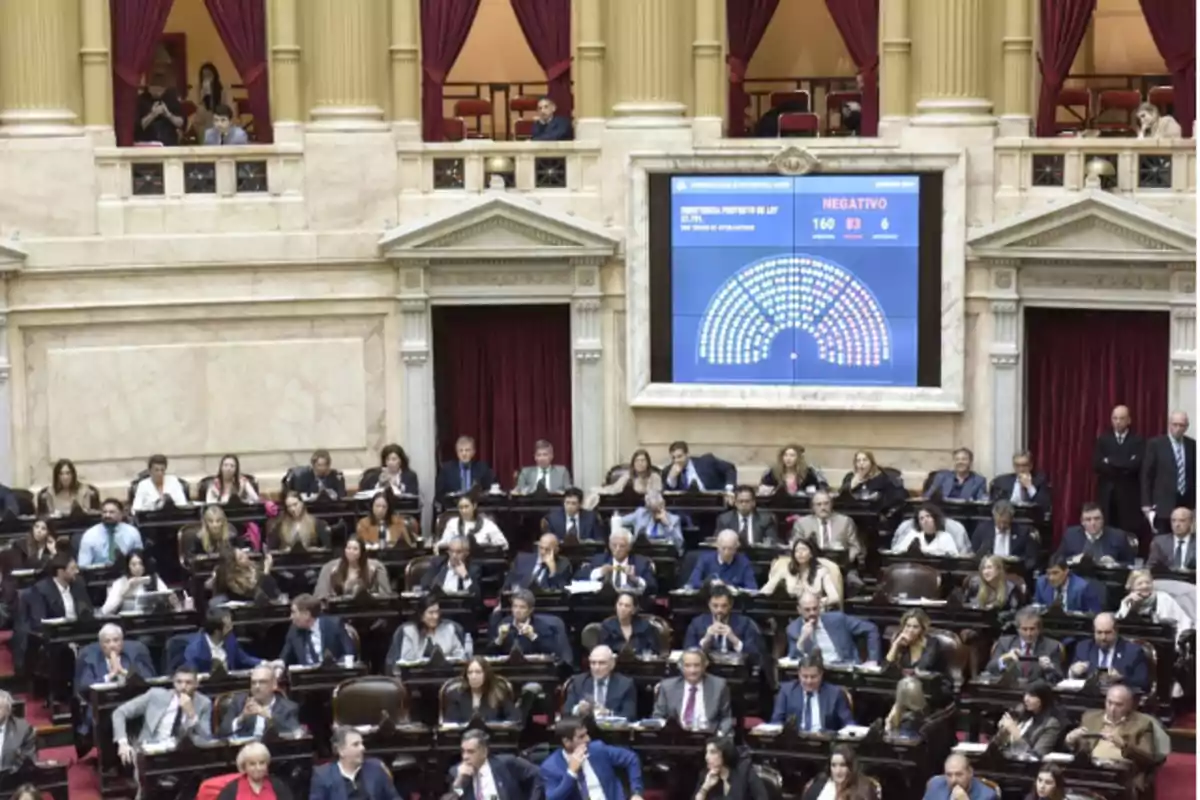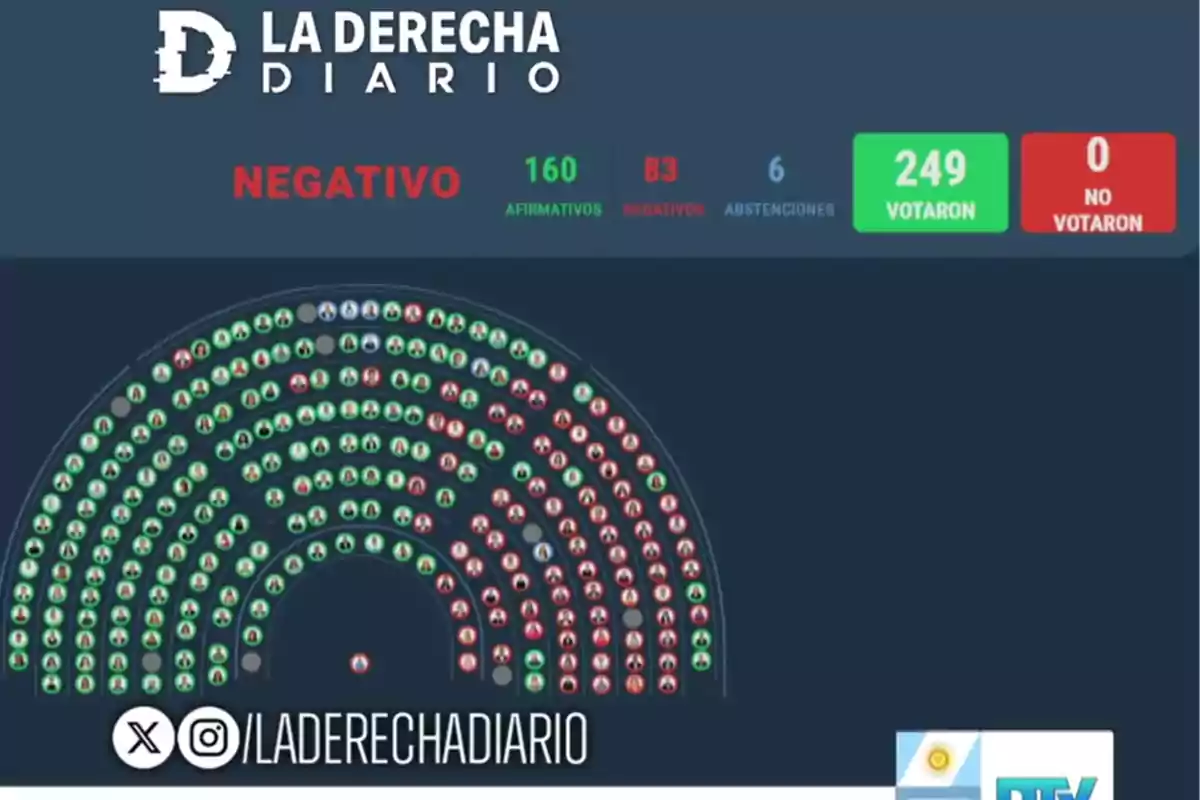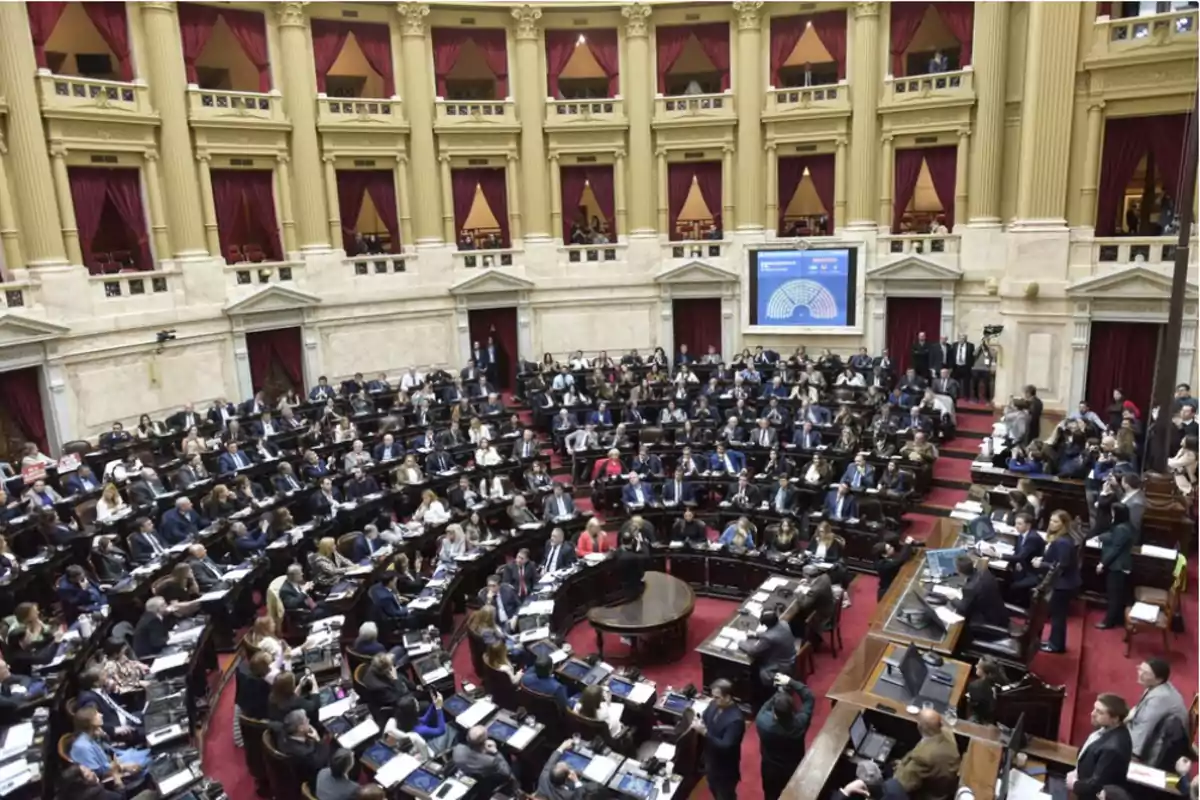
Milei's veto of the deficit-increasing pension hike in Congress has been confirmed.
Congress upheld the presidential veto on the deficit-increasing pension hike promoted by the Kirchnerist opposition
The Chamber of Deputies held a marathon session lasting nearly eight hours that put the standoff between Javier Milei's government and the opposition to the test. The focus of the debate revolved around the presidential veto of the increase in pensions and retirement benefits, a bill that included a 7.2% increase in benefits, as well as raising the monthly bonus from $70,000 to $110,000 with automatic adjustment for inflation. According to calculations by the Congressional Budget Office, the measure would entail an additional expenditure of 0.7% of GDP, without specifying where the funds would come from.
The legislative day began with a partial defeat for the ruling party: at 3:59 p.m., the opposition managed to overturn the presidential veto of the disability emergency law, which provides for an increase in pensions and the automatic indexation of professional benefits. That regulation, whose cost is estimated at between 0.22% and 0.42% of GDP, will now be sent to the Senate for possible ratification. However, the central point of the debate came with the discussion on pensions, where the government warned that fiscal balance was at risk.

The Chief of Cabinet, Guillermo Francos, strongly criticized the opposition's maneuver by emphasizing that the bills "lack committee approval and require non-existent resources." He explained that approving them would force the Executive to return to monetary issuance, a policy that Milei ruled out from the first day of his administration.
In the chamber, the defense of the ruling party was led by libertarian deputy Álvaro Martínez (Mendoza), who closed the debate by recalling that "there is no proposed source of funding" to cover the new expenditure. "Bread for today and hunger for tomorrow," he stated.

Martínez explained that the law only provided for 4% of the total required funding. "Our legislation requires that when an expenditure is proposed, it must be stated where 100% of the outlay will come from. Don't lie to retirees' faces with empty promises, like when they said they would pay pensions with Leliq or Lebac," he pointed out.
In contrast, the opposition sought to downplay the fiscal impact by arguing that better resource management would be enough to cover the increase. Among the most critical of the Executive, deputy Miguel Ángel Pichetto (Encuentro Federal) accused the government of having carried out "the adjustment on retirees" and stated that the ruling party's strategy lacks institutional dialogue. "Who is going to invest in Argentina with a country that governs through vetoes? It's preferable to invest in Africa, where some petty dictator rules," he said in a disparaging tone.
Meanwhile, Pichetto dismissed the judicial route as a tool for the government to block laws in parliamentary process and again called for consensus. "The constant aggression toward Congress leads nowhere reasonable. The President will have to accept Congress's decision," he said.
More posts: